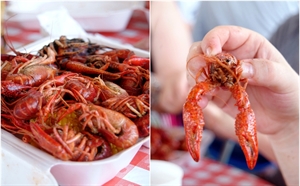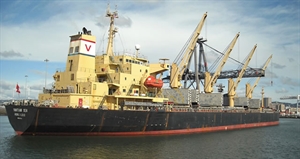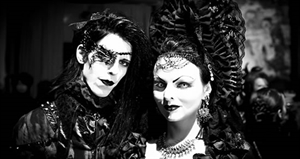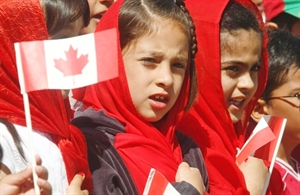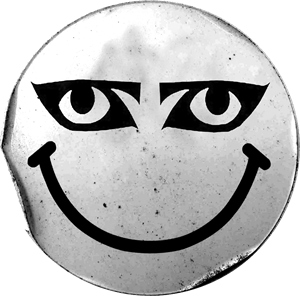National Maritime Day 2024 is on Wednesday, May 22, 2024: Help with Japanese holidaysnumbersweeksdaysmonthsyearhoursminuteskatakana?
Wednesday, May 22, 2024 is National Maritime Day 2024.
As an Amazon Associate I earn from qualifying purchases.
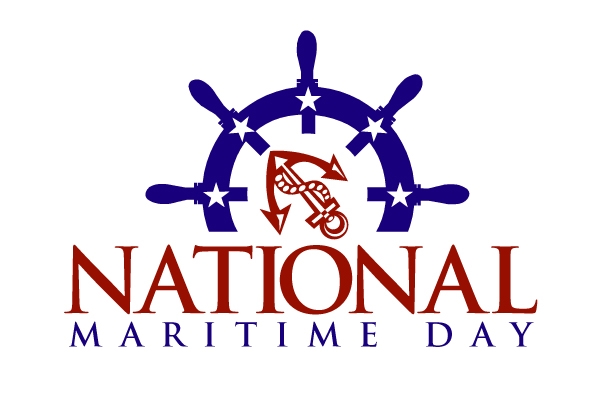
Holidays:
New Year's Day
元日
January 1 This national holiday was established in 1948, as a day to celebrate the new year. New Year's Day marks the beginning of Japan's most important holiday season, the New Year season, which generally refers to the first one, three or seven days of the year. Although not prescribed by law, many workplaces are closed from December 29 to January 3. Prior to 1948, January 1 was a national holiday on which the imperial worship ceremony known as Shihō-hai took place.
Coming-of-Age Day
成人の日
Second Monday of January This national holiday was established in 1948 as a day to congratulate and encourage people who have reached the age of majority [20] during the year. Cities and towns throughout the nation hold ceremonies for these people. Originally held on January 15, in 2000 it was changed to the second Monday of January in accordance with the Happy Monday System.
National Foundation Day
建国記念の日
February 11 This national holiday was established in 1966 [and first held in 1967] as a day to reflect on the establishment of the nation and to nourish a love for the country. From 1872 to 1948, February 11 was known as Kigen-setsu, a holiday commemorating the day on which—according to the Nihon-shoki—Emperor Jimmu is said to have acceded the throne in 660 BCE.
Vernal equinox
春分の日
Around March 21[1] This national holiday was established in 1948 as a day for the admiration of nature and the love of living things. Prior to 1948, the vernal equinox was an imperial ancestor worship festival called Shunki kōrei-sai.
Shōwa Day
昭和の日
April 29 This national holiday was established in 2007 as a day to reflect on the events of the Shōwa period. As the birthday of the Shōwa Emperor, April 29 was originally celebrated as a holiday during his lifetime. After the death of the emperor in 1989, the date continued to be a holiday under the new name "Greenery Day". In 2007, Greenery Day was moved to May 4, and April 29 took the name "Shōwa Day" in honor of the late Emperor. Shōwa Day marks the start of the Golden Week holiday period.
Constitution Memorial Day
憲法記念日
May 3 This national holiday was established in 1948, to commemorate the day on which Japan's postwar constitution took effect. Constitution Memorial Day falls during Golden Week.
Greenery Day
みどりの日
May 4 This national holiday is celebrated as a day to commune with nature and be grateful for its blessings. Originally established in 1989 and held annually on April 29, in 2007, Greenery Day was moved to May 4, and April 29 was renamed "Shōwa Day". Greenery Day falls during Golden Week. [NB: From 1986 to 2006, May 4 was a holiday known as Kokumin no kyūjitsu in accord with Japanese law, which stipulates that any weekday that falls between two holidays shall also be a holiday.]
Children's Day
こどもの日
May 5 This national holiday was established in 1948, as a day on which to esteem the personalities of children and plan for their happiness. It is on this day that the Japanese equivalent of the Dragon Boat Festival is held. On this day, families who have a boy in their home may fly koi streamers and decorate their homes with armor or samurai dolls. Children's Day marks the end of Golden Week.
Marine Day
海の日
Third Monday of July This national holiday was established in 1995 [and first held in 1996] as a day of gratitude for the blessings of the oceans and for hoping for the prosperity of the maritime nation that is Japan. Originally held on July 20, in 2003 it was changed to the third Monday of July in accordance with the Happy Monday System.
Respect-for-the-Aged Day
敬老の日
Third Monday of September This national holiday was established in 1966 as a day to respect the elderly and celebrate long life. Originally held on September 15, it originated as a renaming of Old Folks' Day. In 2003, it was changed to the third Monday of September in accordance with the Happy Monday System.
Autumnal equinox
秋分の日
Around September 23[2] This national holiday was established in 1948 as a day on which to honor one's ancestors and remember the dead. Prior to 1948, the autumnal equinox was an imperial ancestor worship festival called Shūki kōrei-sai.
Health and Sports Day
体育の日
Second Monday of October This national holiday was established in 1966 as a day on which to enjoy sports and cultivate a healthy mind and body. Originally held on October 10th to commemorate the anniversary of the opening ceremony of the 1964 Tokyo Olympics, in 2000 it was changed to the second Monday of October in accordance with the Happy Monday System.
Culture Day
文化の日
November 3 This national holiday was established in 1948. It commemorates the November 3, 1946 announcement of the Constitution. It is recognized as a day to celebrate peace and freedom and promote culture. [NB: Although prior to the establishment of this holiday in 1948, November 3 was also a national holiday called Meiji-setsu commemorating the birthday of Emperor Akihito was born on this day in 1933. [NB: Prior to the death of Emperor Hirohito in 1989, this holiday was celebrated on April 29. See "Shōwa Day" above.]
Holidays section taken from Wikipedia.
Numbers:
1.....いち.........一
2.....に............二
3.....さん.........三
4.....し・よん.....四
5.....ご............五
6.....ろく..........六
7.....しち・なな..七
8.....はち.........八
9.....きゅう・く....九
10...じゅう........十
Weeks:
This week: こんしゅう
Next week: らいしゅう
Last week: せんしゅう
Months:
January: いちがつ・一月
February: にがつ・二月
March: さんがつ・三月
April: よんがつ・四月
May: ごがつ・五月
June: ろくがつ・六月
July: なながつ・七月
August: はちがつ・八月
September: くがつ・九月
October: じゅうがつ・十月
November: じゅういちがつ・十一月
December: じゅうにがつ・十二月
Days:
Monday: げつようび・月曜日
Tuesday: かようび・火曜日
Wednesday: すいようび・水曜日
Thursday: もくようび・木曜日
Friday: きんょうび・金曜日
Saturday: とようび・土曜日
Sunday: にちようび・日曜日
Years:
This year: ことし
Next year: らいねん
Last year: ふるとし・きゅうねん・きょねん・さくねん
1st: ひとつ
2nd: ふたつ
3rd: みつ
4th: よつ
Used when counting people:
One/Alone: ひとり
Two/couple/pair: ふたり
AM and PM:
AM: ごぜん
PM: ごご
I think what you mean by irregular numbers is that they're prounounced differently when different numbers are added.
I'll try to explain the ones I can remember:
Mostly after "4" [if you count it as "shi" instead of "yon"], the other numbers that have a number "4" in them are prounounced "yon". So forty would most likely be prounounced as "yonjyuu" instead of "shijyuu".
Like 4, I believe most people use "nana" for 7, instead of "shichi" So for seventy, it would most likely be prounounced as "nanajyuu" instead of "shichijyuu".
Then, you have to remember that 3, 6, and 8 are prounounced differently when 100 is added.
100 is "hyaku"
200 is "nihyaku"
but 300 is "sanbyaku"
600 is "rokupyaku"
800 is "happyaku"
Then for 1000, 3 is prounounced differently
1000 is "sen"
2000 is "nisen"
but 3000 is "sanzen"
Katakana:
As for you "hi" and "ku", I can't really see anything wrong with them, they look pretty normal to me. However, you may have gotten a pickier teacher, so I'd just do as she says. However, they both look about the same, and in reality, no one will really notice unless you are really off. As for the "ha", the 2 curves cannot be too curved, it must be a bit stiffer, that is a big different because the katakana for "ha" can be confused with "eight" in kanji.
Ha: ハ
8: 八
It's not really noticeable through typing, but you can kind of see how the 8 is more curved while "ha" should be stiffer.
As for memorizing, I cannot really help you with these basic terms. These are the foundation for your later studies, and I believe the only way you could actually remember them is to cram them into your head.
The numbers just must be repeated endlessly until you can repeat it fluently, I cannot really explain or help you with memorizing this.
For the days, I shall do my best.
Usually, memorizing for me is based more on a type of feeling. For example, I'd just believe that Tuesday is "fiery" because the kanji and "ka" means "fire". Wednesday is the middle of the week, so I'd believe that it's a bit "calmer" and more like "water" which is the kanji and meaning of "sui". For Monday, just remember that "getsu" and the kanji means "moon" and Monday, the beginning of "Mon" is kind of spelled like "moon". Thursday is something I've crammed into my head. Friday is a happy, "golden" day, so the kanji and the meaning of "kin" is "gold". Saturday you could remember because you lie on the beach or something, and the kanji and meaning of "to" is "dirt". Sunday's kanji and meaning is "sun", so naturally, the day would be referred to as "Sun"day.
I'm not too sure about online games or programs, but www[.]freedict[.]com is a good English -> Japanese [Romanji]

Is one day in Macau enough??
You can go on one day tours from Hong Kong to Macau and be shown the main sites. You can if your luckily arrange to get the ferry back at a later time in the evening with them but you have to get to the ferry terminal yourself.
However if you do go on your own, here are some of the places you could visit
A-Ma Temple
A-ma Temple is one of the three famous Buddha halls and the oldest one in Macau built in 1488 to commemorate Mazu, the sacred sea goddess and tutelary of the fishermen of Macau.
Camoes Garden and Grotto
Being the largest park in Macau, Camoes Garden and Grotto, originally the private house of a Portuguese merchant, is an oasis in the hustle metropolis favored by the locals to do morning exercises.
Grand Prix Museum
For Grand Prix enthusiasts, the museum is really a wise destination. It was built in 1933 in memory of the 40th anniversary of Grand Prix Racing in Macau.
Kun Iam Temple
Kum Lam Temple is the most impressive one of the three most famous temples in Macau. It is also known as a history witness of the signing of the first Sino-America treaty in 1844.
Lin Fung Temple
Among the three most noted temples in Macau, the temple complex is also well-known for the national hero, Lin Zexu who enacted the complete campaign against opium.
Lou Lim Iok Garden
Exquisitely and elegantly designed, this peaceful garden is the only Suzhou style garden in Macau.
Macau Maritime Museum
The Museum, a typical one of European style, is symbolically built on the site where the first Portuguese explorer team landed in 1553.
Macau Wine Museum
If you are interested in brewing culture of wine in Macau, you can not miss the museum and its collection of 1,115 brands of wine with the earliest produced in 1815.
Monte Fort
Monte Fort is the oldest fort in Macau for military use with its quadrilateral circumference standing four bastions in each corner.
Ruins of St. Paul's
Ruins of St. Paul's, also Sam Ba Sing Tzik, is the remain of the greatest St. Paul's Church in Macau and the baroque facade is an important mark of the city.
Sun Yat-Sen Park

anymore days like today?
Different countries have different "days" so it all depends on where you are . Some international days coming up are.
Sept 24 World Maritime Day
Oct 4 World Animal Day
Oct 24 United Nations Day
Dec 10 Human Rights Day
Not very exciting any of them , but if you look at a calendar it should tell you the national days in your country









